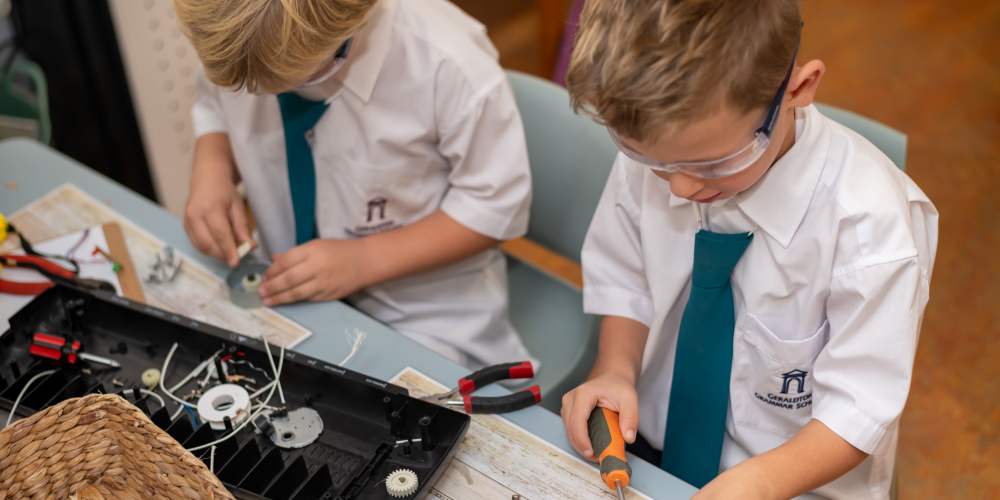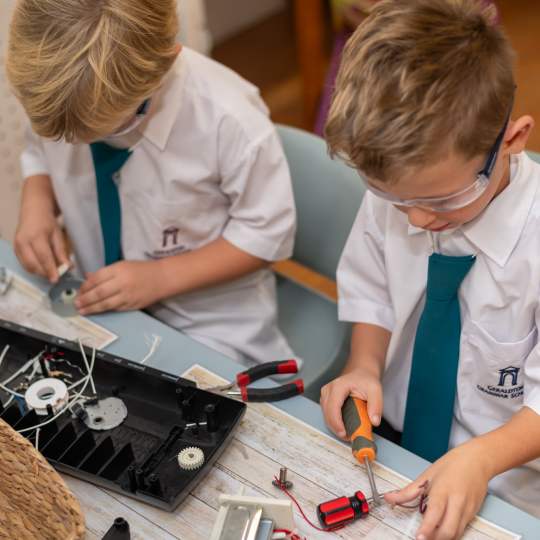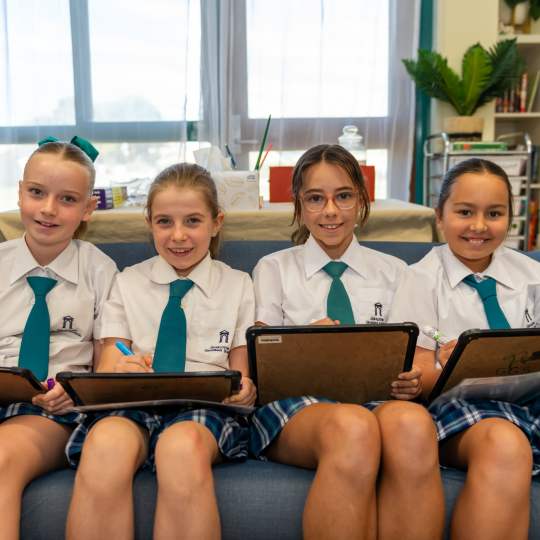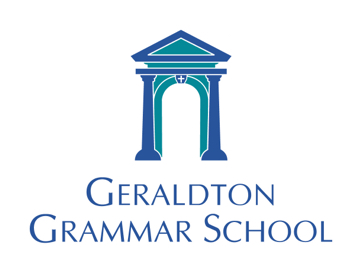
Inclusive Education
Inclusive Education
Our school value of ‘inclusivity’ provides a strong focus for supporting our students. We acknowledge that all children can learn and have different needs. All students are supported in meeting their academic, social and emotional potential.
The school identifies needs and provision of education within a mainstream setting in response to students with diverse learning needs, be that gifted and talented and/or students with learning difficulties and/or disabilities.
Our Inclusive Education Coordinators and team use processes to identify students early, provide intervention and track students closely through a Multi-Tiered Support System. Small group and individual intervention include literacy and numeracy in Primary, using high quality programs of MiniLit, MacqLit (Macquarie University) and Dr Paul Swan’s Bond Blocks (Maths). In Secondary, students needing reading support, have access to the Sounds Write intervention program. All students are carefully tracked through progress monitoring assessments, case management meetings and database monitoring.
Students at educational risk or with special needs, academic and social-emotional, have Individual Education or Curriculum Adjustment Plans set each semester which describe the specific goals and strategies needed. These documented plans are shared with parents, who are invited to provide input as a collaborative home and school partnership.
The school has strong partnerships with WA Country Health Service, with visiting allied health professionals who provide student therapy onsite, and local services like Community Mental Health and Headspace.
For gifted and talented students, we offer extension opportunities within classroom teaching differentiation. Other opportunities include Numero, a maths-based card game where teams of students are selected and participate in competitions. In literacy, Primary hold annual poetry and spelling bee competitions from P-6. We also cater for our gifted and talented students through school clubs, competitions, interschool challenges. In the secondary school, students also have the opportunity to access above-year-level curriculum.
Staff training and resourcing is centred on ensuring best practice is embedded across the school. Educators have received training in neurodiversity and Autism Spectrum Disorder, sensory processing and positive behaviour strategies.
Through social-emotional monitoring tools, interventions also occur for building student wellbeing.
Our Student Wellbeing Officer also provides vital support to staff and students, providing counselling and class-based programs.


